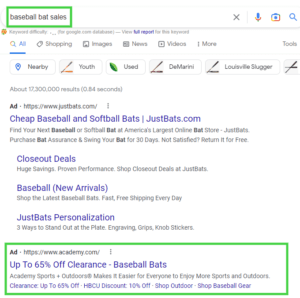Post Updated: 01/03/2024
Roll up, roll up, SEO wizards and PPC maestros! Time to pull back the curtain on the magical world of keyword mapping tools.
Picture this: your keywords are like a herd of wild kittens, frisky and free, scampering about in all directions. Fun? Maybe. Conducive to effective SEO and PPC campaigns? Absolutely not.
Enter the humble keyword mapping tools, the unsung heroes, the shepherd of your fluffy, wayward keyword (kittens). These tools help you corral your keywords, assigning each one a purpose and a place on your website.
In this post, we will take a look at SEO Succor’s 10 favorite keyword mapping tools for 2023.

Hire Experts to Build Your Keyword Map
An alternative to finding the keyword mapping tools you enjoy, conducting your keyword research, and mapping it into spreadsheets for your content team, would be to reach out to us.
We offer professional keyword mapping services, as well as full-service SEO.
Schedule a complimentary consultation with our staff to learn more.
FAQs
What is a keyword map?
A keyword map is an essential tool for any effective SEO strategy. It is essentially a blueprint that links keywords or keyword phrases to specific pages on a website. This mapping helps to optimize each page for a set of closely related, highly relevant keywords, enhancing the page’s search engine ranking for those terms.
In other words, think of a keyword map as a road map for your website’s content. Each road (or page) has a list of towns (or keywords) that it’s associated with. The goal is to ensure that when search engine users type those keywords into their search bar, your page comes up as a primary destination. This practice helps you attract more (and more relevant) traffic to your site, leading to better engagement, higher conversion rates, and improved overall SEO performance.
Keyword mapping is also crucial in identifying and filling content gaps and avoiding keyword cannibalization, which happens when multiple pages on the same website compete for the same keywords. So, a well-executed keyword map doesn’t just boost your site’s SEO – it keeps the peace among your pages, too!
What is keyword mapping?
Keyword mapping is an essential aspect of search engine optimization (SEO) and pay-per-click (PPC) advertising. It involves finding the right keywords and phrases that your target audience is searching for, and using them to optimize your website content and paid search ads. So it goes without saying, having good keyword mapping tools is essential to search engine marketing.
With the right keyword mapping tools, you can gain valuable insights into your target audience’s search behavior and identify low-barrier opportunities to drive more traffic and conversions. These tools will also give you the ability to define search intent at scale, for all of your keyword interests.


